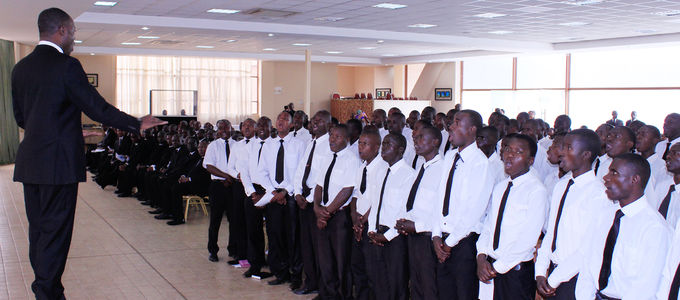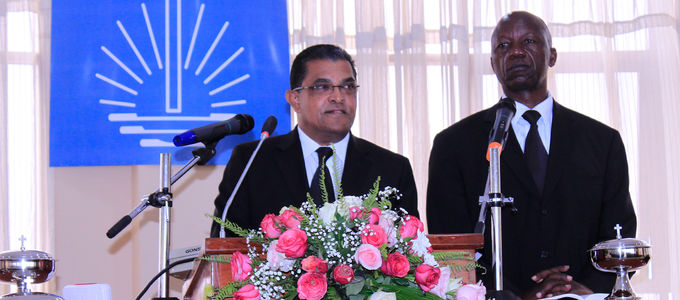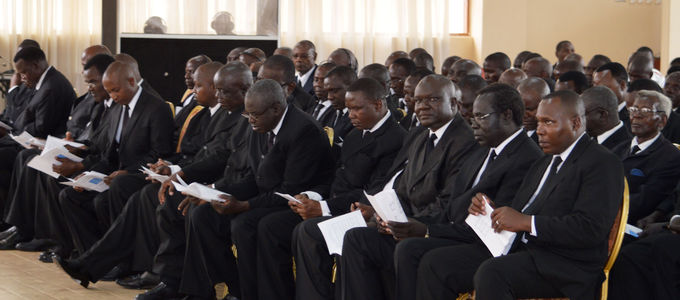
The harvest is plentiful, but the workers are few. What exactly is this harvest? And who are the workers? The Chief Apostle has two interpretations. Following is the summary of a divine service directed not only at ministers.
“Then He said to His disciples, ‘The harvest truly is plentiful, but the labourers are few. Therefore pray the Lord of the harvest to send out labourers into His harvest’” (Matthew 9: 37–38). This was the Bible text the Chief Apostle used for the divine service for ministers in Kampala in Uganda on Friday, 22 July 2016.
As Jesus passed through the villages and the countryside he came across many people, Chief Apostle Jean-Luc Schneider said at the beginning of the service to explain the biblical context. Every person was precious for Him. He wanted to save them all and lead them into the kingdom of God. “What does it mean for us?” he asked.
Jesus, not the church
The answer: “The Lord wants us to share His compassion. Jesus tells us: ‘Look at these souls, I want to save them.’” That is not that easy, the Chief Apostle said, because not everyone is our friend. The labourers mentioned in the Bible text are the faithful, he said. “He wants us to help with the harvest.” And that means that we have to get close to people.
“We have to do it the way Jesus did it. He did not threaten the people, He did not force them. It was His love that drew people to Him,” the Chief Apostle said. “This is not about the New Apostolic Church or about Apostles. Let us talk about Jesus, and tell others how He works, loves, and comforts.”
Work, not social standing
The harvest can also be understood in a different way: as an image for the work of salvation. Here the Chief Apostle made a point of addressing the ministers: “We have been sent by God to bring His people into the kingdom of God. We have not been sent to rule over His people. We have not been sent to solve all their problems. But we have been sent to prepare them for the return of the Lord.”
“We have been sent as workers.” The ministry is not about social standing or about rank and a title, the Chief Apostle said. “Don’t waste your time defending your position. A ministry means that work has to be done. And it is a holy mission.”
Individual pastoral care
To go and bring in the harvest means to go to the people, to the children of God and be close to them. “It is not enough to stand behind the altar and preach and have everybody admire us: ‘O, what a good preacher!’” That is the smallest part of our mission. A big part is pastoral care. “And that means knowing the children of God, sharing their concerns, crying with them, and praying with them.”
The harvest is plentiful: “There are so many, but Jesus wants us to take care of each and every child of God. He wants us to treat them individually, not as a group. Each one is different, and we have to help each one individually.” At the same time we have to bundle them into sheaves, so to speak, because Jesus does not want to bring in individual stalks: “That is also a big part of our mission: to promote unity among the people of God.”
“So these are a few thoughts about our mission,” Chief Apostle Schneider concluded his sermon. “It is a very difficult mission, but at the same time a very wonderful one, a very holy one. We want to carry it out because we love Jesus and because we know that Jesus loves all people.”




















